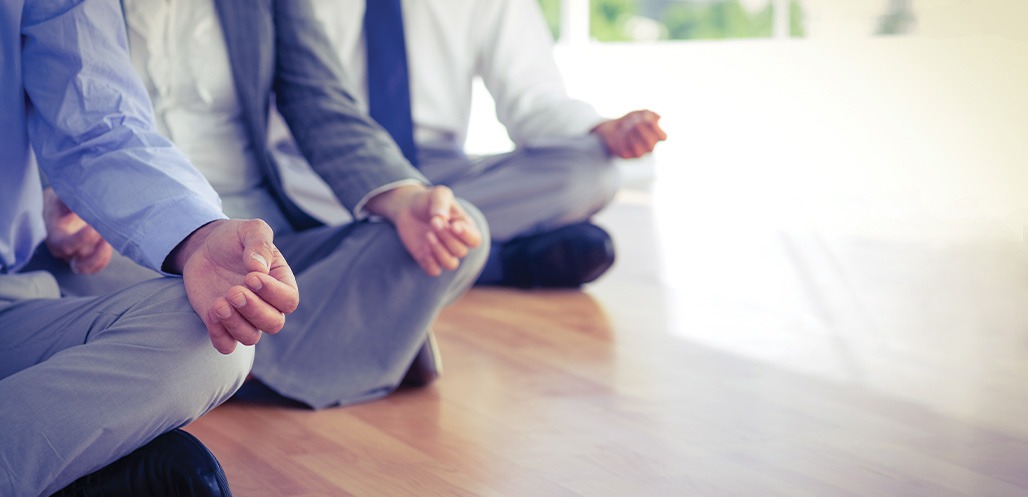Strategies for inclusive and positive experiences
Supporting the mental health of conference attendees is no longer a luxury, but a necessity. Conferences bring diverse individuals together in a high-intensity environment characterized by packed schedules, networking pressures and a constant influx of information.
These factors can impact mental well-being, making it essential for organizers to prioritize mental health support to ensure a positive and inclusive experience for all.
The Importance of Mental Health at Conferences
Mental health is a cornerstone of overall well-being and productivity, yet in the past it was overlooked in professional settings like conferences. Neglecting mental health not only affects attendees’ ability to engage but can also result in burnout, stress and disengagement.
Read More: Job One: Mental Health
By recognizing the unique challenges faced in these environments, organizers have an opportunity to create spaces that promote resilience, connection and holistic well-being for everyone involved. This shift towards prioritizing mental health at conferences marks a crucial step in recognizing the link between well-being and engagement.
Understanding Mental Health Challenges
Understanding the mental health challenges associated with conferences is crucial. While these events offer incredible opportunities for learning and networking, they can also be overwhelming. The fast-paced environment, packed schedules and constant social interaction can lead to fatigue, stress and feelings of isolation, hindering attendees’ ability to fully engage and benefit from the experience.
However, when organizers prioritize mental well-being, they create a more supportive and inclusive environment where attendees thrive. By addressing mental health needs, conferences become more meaningful and impactful, leaving a lasting positive impression on participants.
Creating a Safe and Inclusive Environment
To foster this sense of well-being, creating a safe and inclusive environment is key. This starts with fostering a welcoming atmosphere from the moment attendees register to the closing remarks. Ensuring they feel comfortable and valued sets the stage for a positive experience.
This sense of belonging is further strengthened by implementing clear anti-harassment policies. These policies emphasize respect and safety for all participants, encouraging open engagement while ensuring that any inappropriate behavior is addressed swiftly and effectively.
Providing Access to Mental Health Resources
Beyond creating a safe space, providing access to mental health resources is essential. Offering on-site counseling services provides immediate support for those struggling with stress or anxiety, demonstrating a tangible commitment to attendee well-being. Additionally, sharing information on local support services ensures continued access to resources, which is especially important for multi-day or international conferences where attendees may be far from their usual support networks.
Integrating Mindfulness and Wellness Activities
Read More: Impact Expands Where Wellness Thrives at Smart Meetings Wellness Experience
In addition to providing resources, integrating mindfulness and wellness activities into the conference schedule can be incredibly beneficial. Incorporating relaxation sessions, such as guided meditation or sound baths, allows attendees to recharge and refocus amidst the event’s hustle and bustle.
Similarly, organizing physical activities like yoga, nature walks or even short stretch breaks promotes both mental and physical well-being, encouraging attendees to take necessary breaks and return feeling refreshed and more focused.
Encouraging Open Communication and Peer Support
To further cultivate a supportive environment, encouraging open communication and peer support is key to breaking down the stigma around mental health.
Creating opportunities to discuss mental health, whether through panel discussions or informal forums, helps normalize seeking support and fosters a sense of community. Promoting peer support networks allows attendees to connect with others who may be facing similar challenges, creating a space for understanding, empathy and shared experiences.
Read More: Work Smart: The Art of Communication
Promoting Mental Health Awareness
Finally, conferences have a unique opportunity to address stigmas and promote mental health awareness. By actively challenging stigmatizing beliefs and promoting respectful, inclusive language, organizers can foster a culture of acceptance and understanding.
Advocating for mental health education campaigns and integrating mental health topics into the conference agenda further spreads awareness, equipping attendees with the knowledge and tools they need to support themselves and others.
The Benefits of Prioritizing Mental Health
Prioritizing mental health at conferences creates a win-win situation for everyone involved. Attendees who feel supported, energized and engaged are better able to absorb information, build meaningful connections and leave with a positive overall experience.
This translates to increased attendee satisfaction and a boost to the event’s reputation. Organizers are seen as thoughtful leaders who genuinely care about the well-being of their participants, leading to greater event success and a positive impact that extends far beyond the conference itself.
 Brought to you by Caesars Entertainment
Brought to you by Caesars Entertainment
—
 As a contestant on “The Blox,” the entrepreneur-focused reality TV show, Kristine Iverson showcased her skills and innovation in the competitive landscape of entrepreneurship. Beyond her TV appearances, Iverson is also recognized as an author and wellness advocate.
As a contestant on “The Blox,” the entrepreneur-focused reality TV show, Kristine Iverson showcased her skills and innovation in the competitive landscape of entrepreneurship. Beyond her TV appearances, Iverson is also recognized as an author and wellness advocate.
She is the founder and visionary of the leading live event wellness company, CROW Practice. For nearly a decade, this network has provided endless opportunities for health and wellness to increase the impact of any event, meeting or conference.




